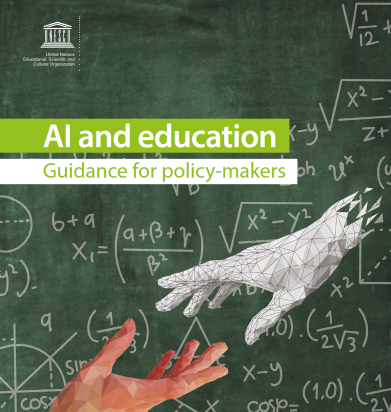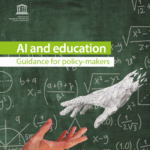
UNESCO’s comprehensive guidelines for integrating Artificial Intelligence (AI) into education systems outline key strategies and considerations to ensure the responsible and effective use of AI technologies. The guidelines aim to promote equitable and inclusive learning environments, empower educators with AI skills, uphold ethical standards, encourage collaborative innovation, and support continued research and infrastructure development.
- The guide provides a basic understanding and definitions of key AI terms, with the aim of demystifying the technology for all stakeholders.
- It also reviews emerging practices and policy responses, providing insights into the global landscape of AI in education.
- UNESCO highlights the need for equitable and inclusive AI in education, aiming to bridge learning gaps through adaptive technologies.
- It advocates for AI to support personalised learning, adapting content to the diverse needs of learners and increasing engagement.
- The document highlights the critical role of teacher training in AI, promoting digital literacy and ethical use of AI in pedagogy.
- Ethical guidelines for AI in education are emphasised, with a focus on privacy, bias mitigation and ensuring that algorithms serve all students fairly.
- Collaborative ecosystems involving educators, policymakers and technologists are recommended to align AI tools with educational goals.
- Ongoing research and evaluation are essential to assess the impact of AI on learning outcomes and to inform ongoing policy development.
- Investment in digital infrastructure is seen as crucial for the successful integration of AI, ensuring access and equity in education.
Read on to learn more: https://unesdoc.unesco.org/ark:/48223/pf0000376709/PDF/376709eng.pdf.multi
